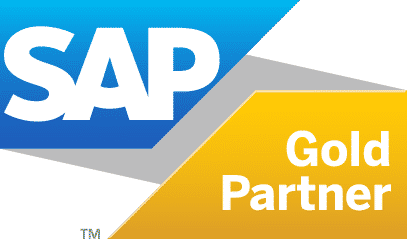
Organizations aim to achieve sustainable growth, improve productivity, and streamline operations in the constantly progressing world of modern business. Enterprise Resource Planning (ERP) systems are becoming widely used as a result of this efficiency drive, with SAP (Systems, Applications, and Products in Data Processing) emerging as a global leader in offering complete ERP solutions.
This blog aims to explore the world of SAP services, ERP systems, and the transformative impact SAP ERP solutions can have on businesses.
Understanding ERP Systems
ERP systems are integrated software solutions designed to manage and streamline core business processes in real-time. These processes encompass various facets such as finance, human resources, supply chain management, manufacturing, and customer relationship management. The primary goal of ERP systems is to facilitate seamless communication and data flow across different departments within an organization, ensuring a holistic view of operations.
Key Features of ERP Systems
These systems offer a centralized platform that facilitates real-time information flow, data analysis, and collaboration.
Here are key features commonly found in ERP systems:
- Integration of Business Processes:
ERP systems act as a centralized hub, integrating diverse business functions into a unified platform. This integration eliminates data silos and enhances cross-departmental collaboration, fostering better decision-making.
- Real-time Data Access:
With ERP, organizations gain real-time access to critical data. This enables timely analysis, reporting, and decision-making, providing a competitive edge in today’s fast-paced business environment.
- Automation of Routine Tasks:
ERP systems automate repetitive and time-consuming tasks, freeing up resources for more strategic activities. By doing this, the possibility of human error is decreased while operating efficiency is also increased.
- Improved Customer Service:
By consolidating customer information and streamlining communication channels, ERP systems contribute to enhanced customer service. Quick access to customer data enables organizations to respond promptly to inquiries and tailor their services to meet customer expectations.
- Enhanced Scalability:
ERP systems are designed to scale with the growth of an organization. Whether a business expands its product lines, enters new markets, or experiences a surge in customer demand, ERP solutions provide the flexibility to accommodate these changes seamlessly.
Introduction to SAP Services
SAP services cover a broad spectrum, including consulting, implementation, customization, training, and ongoing support. The comprehensive nature of SAP services ensures that organizations can harness the full potential of SAP ERP systems tailored to their specific needs.
- SAP Consulting:
These services assist organizations in understanding the potential benefits of SAP solutions for their unique business requirements. Consultants analyze current processes, identify areas for improvement, and provide recommendations for optimizing operations through SAP implementation.
- SAP Implementation:
It is a critical phase in adopting SAP ERP systems. SAP professionals work closely with organizations to configure the software, migrate data, and ensure a smooth transition to the new system. This phase requires meticulous planning and execution to avoid disruptions to daily operations.
- Customization and Integration:
Every business is unique, and SAP ERP solutions can be customized to align with specific processes and workflows. SAP professionals specialize in tailoring the software to meet the individual needs of organizations, ensuring seamless integration with existing systems and technologies.
- Training Programs:
SAP services include comprehensive training programs to empower users with the skills needed to navigate and leverage the full functionality of SAP ERP systems. Training sessions are tailored to various user roles within the organization, from end-users to administrators.
- Ongoing Support and Maintenance:
Post-implementation, SAP services continue with ongoing support and maintenance. This ensures that the ERP system operates optimally, addressing any issues promptly and keeping the software aligned with evolving business needs.
SAP ERP Solutions: A Deep Dive
SAP ERP solutions encompass a suite of software modules that address diverse business functions. These solutions are designed to provide a holistic view of organizational processes, enabling data-driven decision-making and strategic planning.
Let’s explore some key SAP ERP modules and their functionalities.
- SAP S/4HANA:
It is SAP’s flagship ERP suite, designed to run on the in-memory database platform. This next-generation ERP solution integrates advanced technologies such as artificial intelligence and machine learning to deliver real-time insights and agility. It covers core business functions such as finance, supply chain, manufacturing, and procurement.
- SAP Finance (FI):
This module manages financial transactions, accounting, and reporting. It provides features for general ledger accounting, accounts payable, accounts receivable, asset accounting, and financial reporting. With SAP Finance, organizations can ensure accurate and transparent financial management.
- SAP Human Capital Management (HCM):
It covers HR processes, including personnel administration, organizational management, time management, and payroll. SAP HCM enables organizations to efficiently manage their workforce and enhance employee engagement.
- SAP Supply Chain Management (SCM):
The SCM module optimizes the end-to-end supply chain processes, from procurement to production and distribution. It includes functionalities for demand planning, inventory management, order fulfillment, and logistics, allowing organizations to achieve greater efficiency in their supply chain operations.
- SAP Customer Relationship Management (CRM):
It is integrated with SAP S/4HANA and focuses on managing customer interactions throughout the entire customer lifecycle. It includes features for sales, marketing, and customer service, enabling organizations to build stronger relationships with their customers.
- SAP Business Intelligence (BI):
It provides robust tools for data analysis and reporting. It enables organizations to turn raw data into actionable insights, supporting informed decision-making. With SAP BI, users can create dashboards, ad-hoc reports, and predictive analytics to gain a comprehensive understanding of business performance.
Benefits of SAP ERP Solutions
SAP ERP solutions offer a wide range of benefits to organizations across various industries. These benefits contribute to enhanced operational efficiency, improved decision-making, and overall business growth.
Here are some key advantages of SAP ERP solutions:
- Increased Operational Efficiency:
SAP ERP solutions streamline business processes, eliminate redundancies, and automate routine tasks, leading to increased operational efficiency. This, in turn, allows organizations to allocate resources strategically.
- Enhanced Decision-Making:
Real-time data access and advanced analytics provided by SAP ERP solutions empower organizations to make informed decisions swiftly. This agility is crucial for responding to market dynamics and staying ahead of the competition.
- Improved Collaboration:
By breaking down silos and facilitating cross-functional communication, SAP ERP solutions foster improved collaboration among different departments within an organization. This interconnectedness enhances overall productivity and innovation.
- Scalability and Flexibility:
SAP ERP solutions are designed to scale with the growth of businesses. Whether expanding product lines, entering new markets, or undergoing organizational changes, SAP ERP systems provide the flexibility to adapt and grow.
- Compliance and Risk Management:
SAP ERP solutions often include features to ensure regulatory compliance and mitigate risks. This is particularly crucial in industries where adherence to specific regulations is paramount, such as finance, healthcare, and manufacturing.
- Customer Satisfaction:
SAP CRM modules within ERP solutions contribute to improved customer satisfaction by enabling organizations to deliver personalized and efficient customer experiences.
Challenges and Considerations
While the benefits of SAP ERP solutions are substantial, the implementation journey comes with its own set of challenges and considerations.
Here are some potential challenges:
- Cost of Implementation:
The upfront costs of SAP ERP implementation can be significant. Organizations need to carefully assess their budget and ensure that the long-term benefits outweigh the initial investment.
- Complexity of Implementation:
Implementing SAP ERP solutions is a complex process that requires careful planning and execution. Organizations should be prepared for potential disruptions during the transition phase.
- Change Management:
The introduction of ERP systems often necessitates a cultural shift within an organization. Employees may need training to adapt to new processes and technologies, and change management strategies are crucial to ensuring a smooth transition.
- Data Migration:
Migrating existing data to the new ERP system can be challenging. Data accuracy and integrity are paramount, and organizations must invest time and resources in meticulous data migration planning.
- Customization Requirements:
While SAP ERP solutions offer extensive customization capabilities, organizations must strike a balance between tailoring the system to their needs and maintaining standardization for ease of support and upgrades.
Conclusion
ERP systems and SAP services are effective instruments for businesses looking for productivity, adaptability, and long-term expansion. SAP is a leader in the world of ERP solutions, and its extensive services provide a way for companies to automate, integrate, and streamline their processes. The journey with SAP involves utilizing the full potential of ERP systems customized to specific business needs, from advising and implementation to continuing support.
The long-term advantages of better decision-making, increased operational efficiency, and increased customer satisfaction establish SAP ERP solutions as a transformative force in enterprise management, notwithstanding implementation-related hurdles. Businesses are finding that a crucial factor in their success is their strategic deployment of SAP services and ERP systems as they work to optimize the complexities of today’s market.




